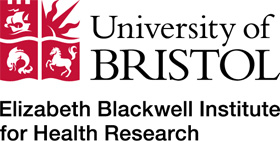News in 2015
- Do eating disorders cluster in schools? 6 July 2015 Clinicians working with young people with eating disorders have the impression that they see more students from some schools than others, and indeed the national press has reported that there is an epidemic of eating disorders in all girls’ public schools. However, there was no research investigating whether or not this is true.
- Postnatal depression and effect on children’s development 25 June 2015 Postnatal maternal depression is a well known risk factor for poor emotional outcomes in childhood and long term risk of offspring mood disorders, which pose substantial global economic and health burden. Dr Rebecca Pearson, School of Social and Community Medicine, University of Bristol, aims to understand the mechanisms underlying the risk of developmental disturbances in the offspring of mothers who are depressed during pregnancy and after birth, and to translate this into preventative interventions.
- The Sleeping Newborn Brain 1 May 2015 Newborn children spend much of their lives sleeping. It is known that the brain is actually very active while babies sleep and that this activity is important in controlling how the brain develops. The team of researchers led by Dr Mike Ashby (School of Physiology and Pharmacology, University of Bristol) and including Dr Jade Thai (Clinical Research and Imaging Centre, School of Clinical Sciences), Dr Karen Luyt and Dr Adam Smith-Collins (Neonatal Neurosciences), aims to understand the link between sleep and healthy development of the newborn brain.
- EBI award helps to improve understanding of back pain in women 1 May 2015 The study led by Dr Emma Clark at the University of Bristol provides the first evidence that there is a difference in back pain between women with and without vertebral fractures. It forms a basis for understanding why only a fraction of women with vertebral fractures comes to clinical attention and provides an important next step in conducting further research in this area.
- Stem cells help to repair pelvic floor injuries 9 April 2015 Pelvic floor injury can come as an unpredicted and distressing outcome for the majority of young women affected with approximately 1% suffering anal sphincter injury as a result of child birth. Even after correct diagnosis and repair long term anal incontinence is recorded in 20-67% of women.
- Sleep in your genes? 8 April 2015 Different parts of our brain communicate with one another as we learn new information during the day. Then, while we sleep, our brain files away memories for long-term storage. Evidence suggests that this process, which varies naturally in everyone, may be disrupted in patients with mental health conditions.
- EBI Clinical Primer helps to improve diagnosis of bowel cancer 2 April 2015 Adam Chambers, a surgical trainee in the East Midlands Deanery, is used to applying research evidence in his day-to-day surgical care of patients. Adam believes that basic scientific research is the vital initial step that ultimately leads to a change in clinical practice, and that’s why he welcomed an opportunity to develop his academic interests through an EBI Clinical Primer scheme alongside continuing his surgical training.
- EBI Senior Fellow brings new expertise in brain imaging to Bristol 19 February 2015 Paul Warr, a Senior Lecturer in the Department of Electrical and Electronic Engineering, University of Bristol, spent his Elizabeth Blackwell Institute Senior Fellowship working at the Martinos Centre for Biomedical Imaging alongside experts from three top USA academic institutions, Harvard, MIT and Stanford, trying to improve MRI images of the brain.
- EBI award helps to improve radiation cancer treatment 18 February 2015 Jaap Velthuis, from the School of Physics, University of Bristol, together with a team from the University of Swansea and the University Hospitals Bristol NHS Foundation Trust, developed a novel detector system to monitor the X-ray therapy beam shape and intensity in cancer treatment.

